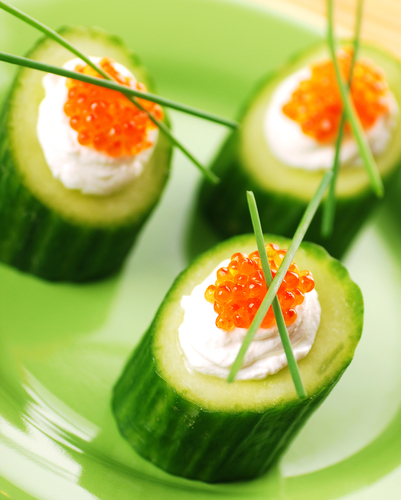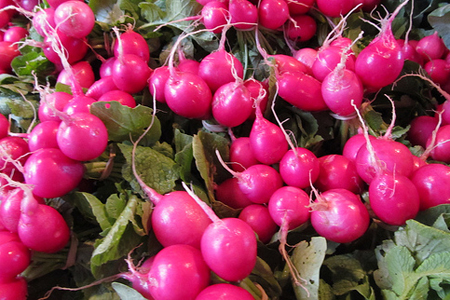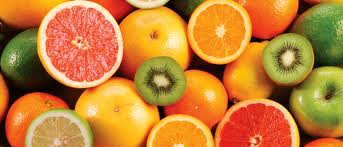
Staying hydrated is one of the most overlooked factor in staying optimally well. It is one of the best remedies to headaches, body and muscle cramps and helps people achieve glowing skin. It is very important to keep hydrated, as we are only as optimal as the liquids we consume, use and bathe in. Countless articles talk about hydration and its importance, like the Chopra Center Lifestyle Newsletter. In the article, there was a simple and easy to follow segment about staying hydrated with foods (not necessarily just drinking water). It is a good reminder that we can acquire hydration from many different aspects.
"As the temperature rises, our bodies adjust to stay cool and balanced. Staying hydrated is a critical part of maintaining that balance. How do you know when you’re properly hydrated? Begin by paying attention to feelings of thirst as well as your water intake throughout the day. If you’re not sure, just look at your urine; if it’s light and clear, you’re probably well hydrated; if it’s dark or concentrated, you’re most likely dehydrated.
Our body is composed of up to 50 to 75 percent water; the body uses water for almost every function: it carries oxygen and nutrients, transports hormones, moistens tissues, protects organs, regulates body temperature, lubricates joints, and uses it to eliminate toxins through the colon, skin, and bladder.
When you don’t take in enough water, your body can become chronically dehydrated.
Chronic dehydration can cause symptoms that include lack of energy, migraine, or other chronic pains such as joint pain, difficulty concentrating, lack of mental clarity, and insomnia. Even anxiety and depression have been linked to chronic dehydration. According to preliminary research, chronic dehydration can also slow the body’s metabolism. 
Our body loses water every day through breathing, sweating, and digestion, and above all, by eliminating toxins through urine. Daily water loss varies from person to person; it depends on your body weight, activity level, diet, climate (temperature and humidity), and water intake.
Special attention must be paid if you’re experiencing any illness that may enhance your water requirements, including high fever, vomiting, and diarrhea. You’ll likely require more water on hot, humid days, while breastfeeding, or during vigorous exercise.
Many people don’t like to drink plain water, or just don’t have the habit of doing it. However, much of the water we take in each day comes from food. You can ensure proper hydration by drinking other fluids and by eating foods that have a high water content.
This veggie has the highest water content of any solid food at 95 percent. It’s very versatile; you can consume it in salads, smoothies, as a snack, or in chilled soups. It also contains vitamin E and essential oils.
Apart from its high-water content, celery has fiber, folate, and vitamins A, C, and K.
This food also contains antioxidants and their crunchy texture makes them perfect for summer salads.
This fruit contains 94 percent water, vitamin C, and is packed with antioxidants, especially lycopene, a cancer-fighting antioxidant.
It contains up to 92 percent water and is also packed with antioxidants, minerals, and vitamins—mostly C and group B.
Spinach has more than 92 percent water and a high content in potassium and calcium. It also contains many other minerals and vitamins, mainly group B vitamins. Because of its antioxidant content, it’s known as an anti-cancerous food.
Broccoli also has high water content and it’s packed with minerals and vitamins, mainly A, D, and K. Broccoli contains phytonutrients that have a strong impact on the body’s detox system. It also has cancer-fighting and immune-boosting properties.
All fruits have a very high water content. Most of them are an excellent source of vitamins and fiber as well. In addition to tomatoes, referenced above, other fruits with the highest water content include watermelon, strawberries, grapefruit, kiwi, oranges, and cantaloupe.
This popular drink has a high electrolyte content and potassium, which plays a crucial role in regulating body fluids. You can drink it straight or add it to a smoothie. You may want to pay attention to the sugar content and choose a variety without added sweeteners. Be aware that coconut water doesn’t have any fiber content.
Remember that these fruits and veggies are better consumed raw because they lose their water content when cooked or broiled. You may also want to include bananas in your diet because they have high potassium and magnesium levels, which helps regulate fluids in your body.
It’s still important to drink plenty of water to stay hydrated, especially in the summertime, but you can also quench your thirst with these super-hydrating foods."
Source:
See more at: http://www.chopra.com/ccl/9-ways-to-stay-hydrated-without-drinking-water
